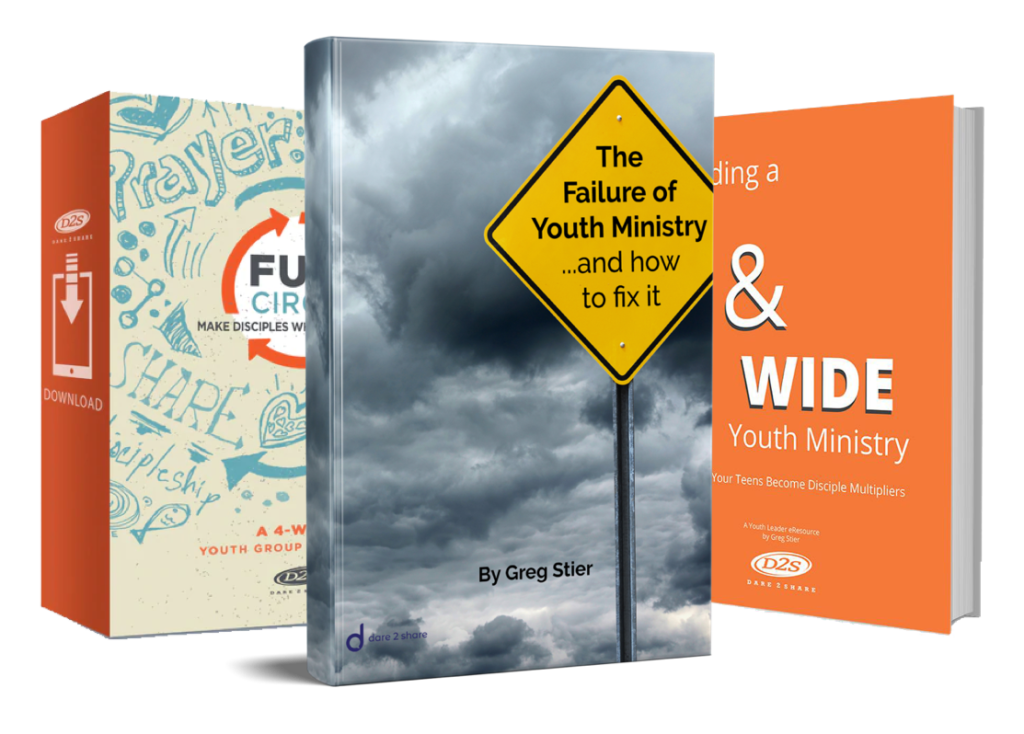What’s the science behind the coming total solar eclipse? Something about the moon, right?
If you’re one of the multitude of adults who are struggling to pull up their fifth grade earth science unit about solar eclipses, it’s probably a reasonable bet that you’d get a deer-in-the-headlights look if you ever had a student come to you with serious questions about the (mis)perception that God and science are at war with each other.
Try This! ❯
Use the total solar eclipse on August 21st as a springboard for talking to your students about God and science.
Well, even if you were never good in science, you don’t need to fumble these types of questions. Don’t be intimidated. You don’t have to be a trained scientist in order to grasp a few foundational insights that can help your students not only have confidence in their own faith beliefs, but also equip them to kindly, respectfully engage in deeper discussions on the topic of God and science with others as they seek to advance the gospel.
Since 1 Peter 3:15 tells us to “…always be prepared to give an answer to everyone who asks you to give the reason for the hope that you have. But do this with gentleness and respect…,” it can be helpful to provide your students with a few basic insights in this area. Then if your students are actively sharing their faith with their friends and the God vs. science topic comes up, they won’t be blind-sided.
4 Scientific Insights that Point toward God
So here’s a short, very simple primer on four key waves in the expansion of scientific knowledge that point toward the God of the Bible.
1. Complexity
As science has developed a deeper understanding of the complexity of DNA, there is an ever-growing body of evidence that points toward “an author” for this amazingly complex digital code that serves as the blueprint for human life. Microsoft founder Bill Gates put it this way, “DNA is like a computer program but far, far more advanced than any software ever created.” And just like scientists would look at computer code and infer that there must have been an author who wrote the code that makes the computer function, the even greater complexity of our body’s DNA code, very logically points toward God as “the author of life” (Acts 3:15).
2. Fine-tuning
The more scientists understand about the exact laws and constants of physics and the foundational building blocks of chemistry, the more obvious it becomes that our earth is precisely fine-tuned for life. If the constants of nature—like the strength of gravity, the charge of an electron and the mass of a proton—were just the tiniest bit different than they are, then atoms would not hold together, stars like our sun would not burn and our Earth would not sustain life.
Amazingly, there are over 200 known parameters necessary for a planet to support life. And each of these parameters needs to interface with the others perfectly in order to sustain life. The odds that all of these parameters would just happened to be fine-tuned perfectly for life on Earth have been compared to tossing a coin and having it come up heads 10 quintillion times in a row. (How big is a quintillion?) How cool is that?
3. Beginnings
Contrary to popular belief, the Big Bang Theory is more than a sitcom—it is also the most widely-accepted scientific theory about the origins of the universe. It theorizes that there was a specific point in the past where all time, space and energy came into existence together in one “big bang.” Prior to the scientific community’s embrace of the Big Bang Theory, most scientists believed that the universe was eternal in nature and had no fixed-point beginning.
Interestingly, this shift in astrophysics’ theory across the past few decades regarding the beginning of the universe finds science actually moving closer to what the Bible has taught for two millennia—that “In the beginning, God created the heavens and the earth.” Of course there are still divergent views about origins and the proper reading of Genesis, (even among Christian scientists when it comes to the “young earth/old earth” debate), but the now widely-accepted scientific view that there was a single ignition point in time for the origin of the universe is a big step in the right direction.
4. Archeology
The Dead Sea Scrolls—which many believe to be the greatest archeological discovery in the past century—provide compelling evidence that supports the validity of the Old Testament prophecies about Jesus the Messiah. These archeologically ground-breaking Scrolls lay undisturbed in an Israeli cave for 2000 years, until they were discovered by two Bedouin shepherds. They independently confirm the accuracy of the Old Testament Messianic prophecy.
The Scrolls are Hebrew Scriptures that date back to 100 BCE, well before Jesus lived. Because they pre-date Christ, they provide compelling evidence that the Old Testament prophecies foretelling details about the Messiah were written long before Christ arrived on the scene. The Dead Sea Scrolls debunk any possible theory that these specific prophecies about Jesus were the result of some free-wheeling monk in the Middle Ages “enhancing” the case for Christ being the Messiah by altering the original text in the transcription process.
Following the Evidence
Your students may be surprised to learn that there are plenty of top-notch, award-winning scientists who are Christians. In fact, throughout its history, the majority of Nobel Prizes have been awarded to Christians in the fields of Chemistry (72.5%), Physics (65.3%) and Medicine (54%).
And as scientific understanding has deepened, many scientists are increasingly following the logical evidence that points toward an Intelligent Designer.
It wasn’t that long ago that the buzz was that the God of the Bible and science were at war with each other. Who moved? You be the judge.
Are the God of the Bible and science at war with each other? No. Click To Tweet
Want more practical advice on mobilizing your teens to share the gospel? All of our Mobilize stories offer great ideas for training your students and building a Gospel Advancing Ministry. Sign up here to receive this free, hands-on resource in your inbox!








